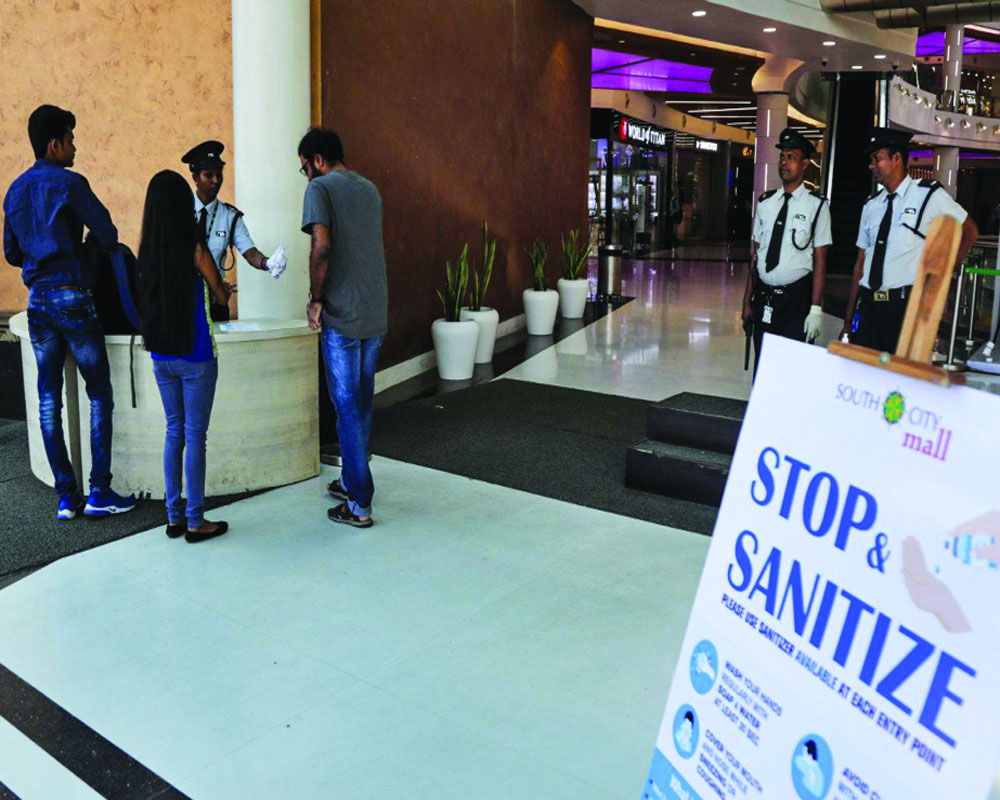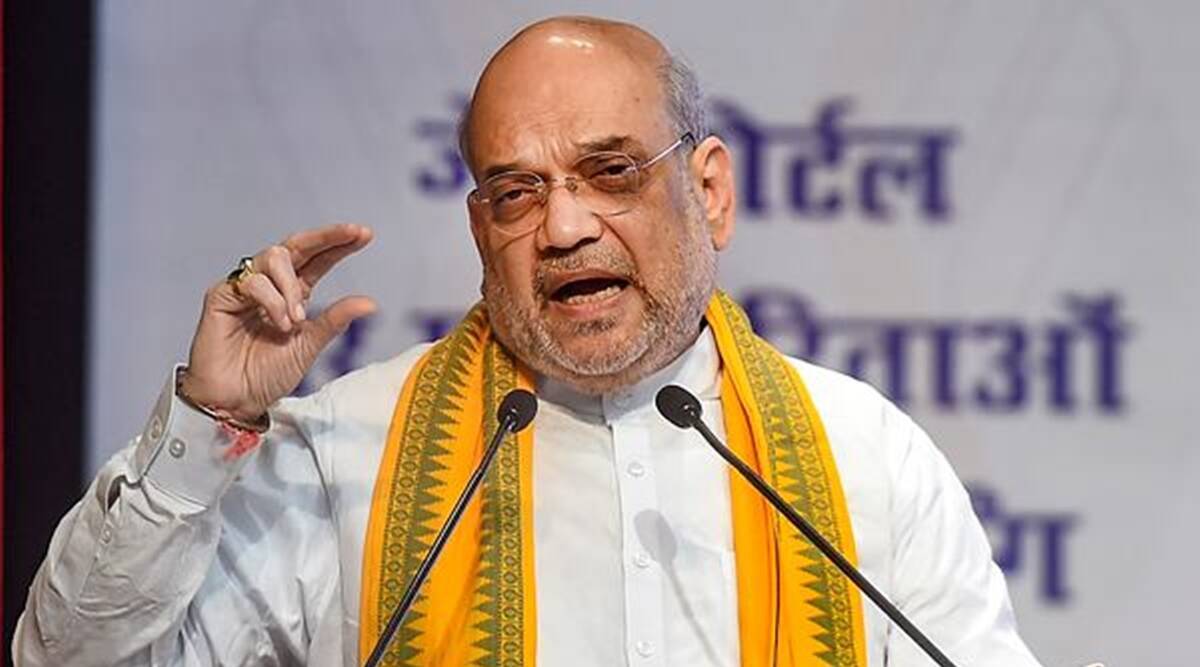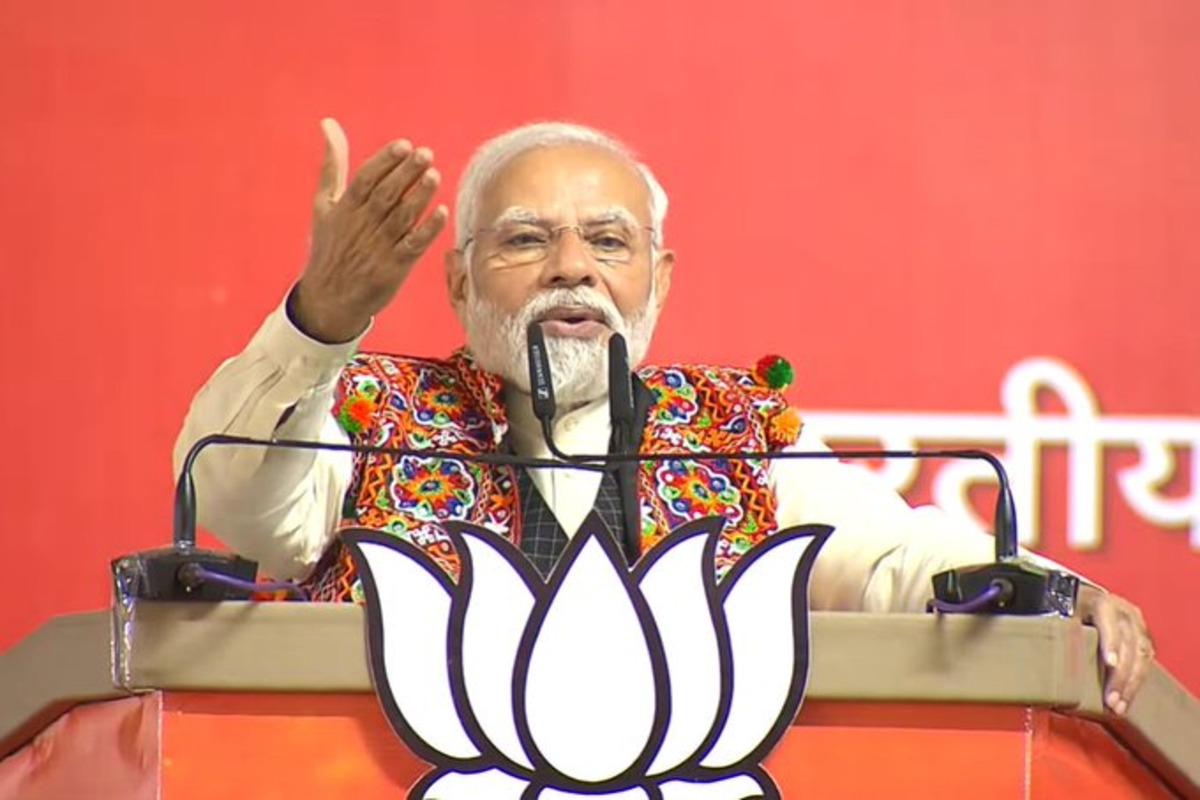There is need for a comprehensive legislation encompassing all aspects of public life, stipulating rules and regulations vis-a-vis social distancing and crowd management
Despite the fact that nearly three billion people are under lockdown globally, there has been no let-up in the number of Coronavirus cases. The world is still busy battling the Corona crisis as the number of cases has risen to 42,68,496 and casualties have touched the 2,87,463 mark globally. India, too, has seen the number of confirmed cases rise to 70,827 and deaths spike to 2,294 despite the prolonged lockdown the nation has placed itself under. As the world economy stumbles and the monetary security of many nations lies in tatters, more and more countries are coming round to the realisation that they will have to open up their economies sooner than later. Even India has decided that it needs to live with the Coronavirus and the Government has begun to ease restrictions slowly.
As we gradually come out of the lockdown, there is a realisation that life is not going to be the same again. The world, as we know it, has changed as we have to live with the virus. The possibility of the invention of a vaccine as of now appears to be very remote. So, in order to survive, we just have to change the way we live our lives and bring in new legislation to enforce social distancing and crowd management, which are the two crucial aspects relevant to the control and the spread of the Coronavirus.
Albeit different legislations in relation to safety at the workplace and public places have been passed, they are directed only towards providing physical safety. These legislations, viz. the Municipal Corporations Act, Municipalities Act and certain other regulations relating to workplace hazards do not contemplate the requisite guidelines pertaining to social distancing and crowd management. Other statutes relating to workplace hazards contemplate only the steps to be taken in relation to the health of the staff vis-a-vis the nature of work that is being done.
Covid-19 has compelled us to adhere to new norms in relation to health, irrespective of the nature of work, place of congregation, reason for the gathering and so on. Certain measures like maintaining hygiene, social distancing, wearing masks and restricting the number of people travelling in a car to three, have to be compulsorily adhered to.
The shutdowns can only buy us time to prepare for the pandemic and reduce the pressure on the healthcare system, but will in no way help end the epidemic. There is a possibility of an exponential increase in cases once the lockdown is totally lifted. As it is, we have seen a spike in cases after the Government eased some restrictions and allowed limited economic activity.
So, unless our conduct is strictly regulated, it would be very difficult to prevent large-scale community transmission of the dreaded virus. Highly-regulated social conduct is warranted to minimise the destruction that may be caused in future due to outbreaks.
At present, the legislations are directed only towards workplaces. They are silent with regard to social distancing and crowd management. For instance while sanctioning permission for construction of a building to run a cinema hall, the requisite parameters taken into account would be the number of seats vis-a-vis the physical safety. But social distancing inter-se between the audience and the management of the crowd at the cinema halls is not stipulated in the legislation. It’s the same in the case of religious places, schools, marriage halls, restaurants and so on.
Therefore, there is a requirement for a comprehensive legislation encompassing all the aspects of public life, stipulating rules and regulations vis-a-vis social distancing and crowd management. The said legislation should have an overriding effect over all the other Acts and anything done under the said Acts should be in consonance with such a legislation.
It should provide for penal provisions in case of violations. The present enactments such as the Epidemic Diseases Act, 1897 and the Disaster Management Act, 2005 are not enough to control and enforce strict social distancing and crowd management in various spheres of life as they don’t contemplate these norms. In fact, these legislations are being invoked as a temporary measure now.
The Epidemic Diseases Act, 1897 is a very short legislation which can be enforced only when there is a pandemic but would not serve the purpose of preventing one. Similarly the Disaster Management Act, too, is directed mostly at post-disaster management and not at averting one.
The Epidemic Diseases Act, 1897 was enacted for the better prevention of the spread of contagions. Section 2 of the Act contemplates that, “When at any time the State Government is satisfied that the State or any part thereof is visited by or threatened with an outbreak of disease, the State Government may take, or require or empower any person to take, such measures and by public notice, prescribe such temporary regulations to be observed by the public by any person or class of persons as it shall deem necessary, to prevent the outbreak of such disease or the spread thereof. It may determine in what manner and by whom any expenses incurred shall be defrayed.”
Section 2A confers power upon the Central Government to take measures and prescribe regulations for the inspection of any ship or vessel leaving or arriving at any port and for its detention. The said provisions do not contemplate any permanent regulations and the rules governing the field of social distancing. While enacting the said legislation, the draftsmen could not have visualised the present complex nature of development viz. commercial and technological.
The Disaster Management Act, 2005 was enacted to provide for requisite institutional mechanisms for drawing up and monitoring the implementation of disaster management plans and ensuring measures for the prevention and mitigation of the effects of disaster and for undertaking holistic, coordinated and prompt response to any disaster situations. Section2(d) defines disaster as a catastrophe, mishap, calamity or grave occurrence in any area arising from natural or man-made causes or by accident or negligence, which result in substantial loss of life or human suffering. The reading of the definition shows that essentially the Act is directed towards post-disaster management.
Similarly Section2(e) which defines disaster management also shows that it is directed only in relation to post disaster management. Section 75 and 76 confer powers upon the Central Government to make rules and regulations. Section 78 confers power upon the State Government to make rules but the said rules and regulations would be in relation to disaster management but do not take into their fold comprehensive guidelines to regulate social distancing and the crowd management at all places of congregation.
As these two legislations cannot provide any regulation for social distancing and crowd management post the lifting of the lockdown, there is a dire need for a comprehensive legislation to do that.
The statute would have to take into its fold various types of congregations and issue necessary guidelines to be followed for regulating social distancing and crowd management. What we require is the prevention of spread of any virus/disease due to human contact directly or indirectly. To do this we need a comprehensive legislation stipulating various conditions taking into its fold various spheres of congregation.
The said law should also contemplate the creation of an expert body to frame respective guidelines in relation to social distancing and crowd management at different places of congregation.
The action that has been initiated by the Central and State Governments at present is only for the purpose of controlling the spread of the virus during the lockdown period. Once the lockdown ends, and end it will one day, the parameters relating to social distancing and crowd management would be very essential. Therefore, unless such a legislation is brought into force it would be very difficult for us to live with the Coronavirus.
(Writer: Chittarvu Raghu; Courtesy: The Pioneer)








 OpinionExpress.In
OpinionExpress.In















Comments (0)